UD Trucks: Revolutionizing Fleet Management Through Digital Innovation and Driver-Centric Interface Design
Working with UD Trucks, I designed comprehensive digital experiences for their fleet management systems and driver interfaces. The project focused on creating intuitive dashboards that prioritize safety, efficiency, and real-time data visualization. Through extensive user research with drivers and fleet managers, we developed interfaces that seamlessly integrate with existing workflows while introducing innovative features for route optimization, vehicle diagnostics, and driver performance monitoring. The design system established a new standard for automotive interface design, balancing complex data presentation with operational simplicity.
Project Length
2021-2022
Team
Innovation Lab
Platform
Web Dashboard & Mobile
A driver app that monitors and educates drivers on their driving behaviours.
What could a smart, intelligent, connected digital experience that supports drivers plan operations, predict potential maintenance tasks, log repairs & replace broken parts to avoid un-necessary downtime across the fleet look like?
How do drivers currently note their pre-trip & post-trip checks?
As part of our initial research, we conducted workshops and interviews with drivers to better understand their pain points and what gains they would seek. We took some of these findings into a value proposition canvas.
"We often lose our paperwork"
Driver Pain Point
Research Finding
"Trip checks can take a very long time!"
Driver Pain Point
Research Finding
"Which pre and post trip checks are required"
Driver Pain Point
Research Finding
"Adblue stations can be hard to find"
Driver Pain Point
Research Finding
"Each step of the checking process isn't always clear"
Driver Pain Point
Research Finding
"We don't know how to increase efficiency"
Driver Pain Point
Research Finding
A day in the life of a typical truck driver
We began to understand how this app would fit into the daily life of a driver. We built a story around this and made it the centre-piece for how we designed the app. We wanted the app to seamlessly fit into the life of a driver, feeling natural as part of their routine.
Briefing
Ahmad is scheduled to make a 567km journey from Johannesburg to Durban. On this journey, he will be transporting goods on a Quester truck. On arrival at the loading facility, he's assigned a truck by the fleet manager which has already had its cargo loaded. Whilst walking to his truck Ahmad launches the UD Trucks app. He is then presented with an option to start a trip. He taps on the start a trip button and then proceeds to scan the plate number of the vehicle.
Pre Trip Check
Ahmad carries out a pre-trip check with the guidance of the app on his mobile device. As he views the pre trip screen, he notices that the app displays a warning that the AdBlue levels may be too low, he keeps this in mind so he can fill the AdBlue levels up before he departs.

Brake Alert
200km into his journey he receives an alert on his dashboard - he's been braking very harshly for the last 50km of his journey, the app reminds him that slower braking techniques will help improve fuel efficiency and maintain health of the vehicle. Acting on this advice he begins to brake more gently, this saves around $20 of fuel over the course of the trip.
Service Station
He stops over on the hard shoulder for a scheduled break and uses taps on 'POI' on his UD Trucks app. He locates the nearest service station quickly en-route to his destination. He taps the 'Open in Google maps' button and navigates to a service station.
Post Trip Check
He takes his break at the service station and completes his journey 3 hours later. He swipes 'Complete trip' on the application and is then prompted to carry out post-trip checks. Ahmad checks the air filters and notices they are slightly clogged up, he taps on a CTA button on the app which lets the fleet managers know about the issue, before moving onto the next post trip check step.

Self Improvement
Ahmad finishes his post trip checks and heads over to the crew resting area. He launches the UD Trucks app and views his post trip summary, he receives a score of 78/100 and is delighted, he swipes down and views some cards that give him tips and tricks to improve his score. Ahmad takes these tips onboard so he can improve his driving for the next trip he takes.

Exploring the best journey we can deliver
We developed a cohesive picture of how the app would look like.

Lo-fi wires to test without bias
We first built out a lo-fi prototype, ensuring that any usability testing to be conducted would not be biased by colours or imagery.



Using Cinema4D + Octane
As the app design started, I custom designed and rendered imagery and video in a monochromatic style for the app. I used Cinema4D and the DRIVE+ C4D plugin to accurately simulate vehicle dynamics. Furthermore, I used Octane to render out the sequences.
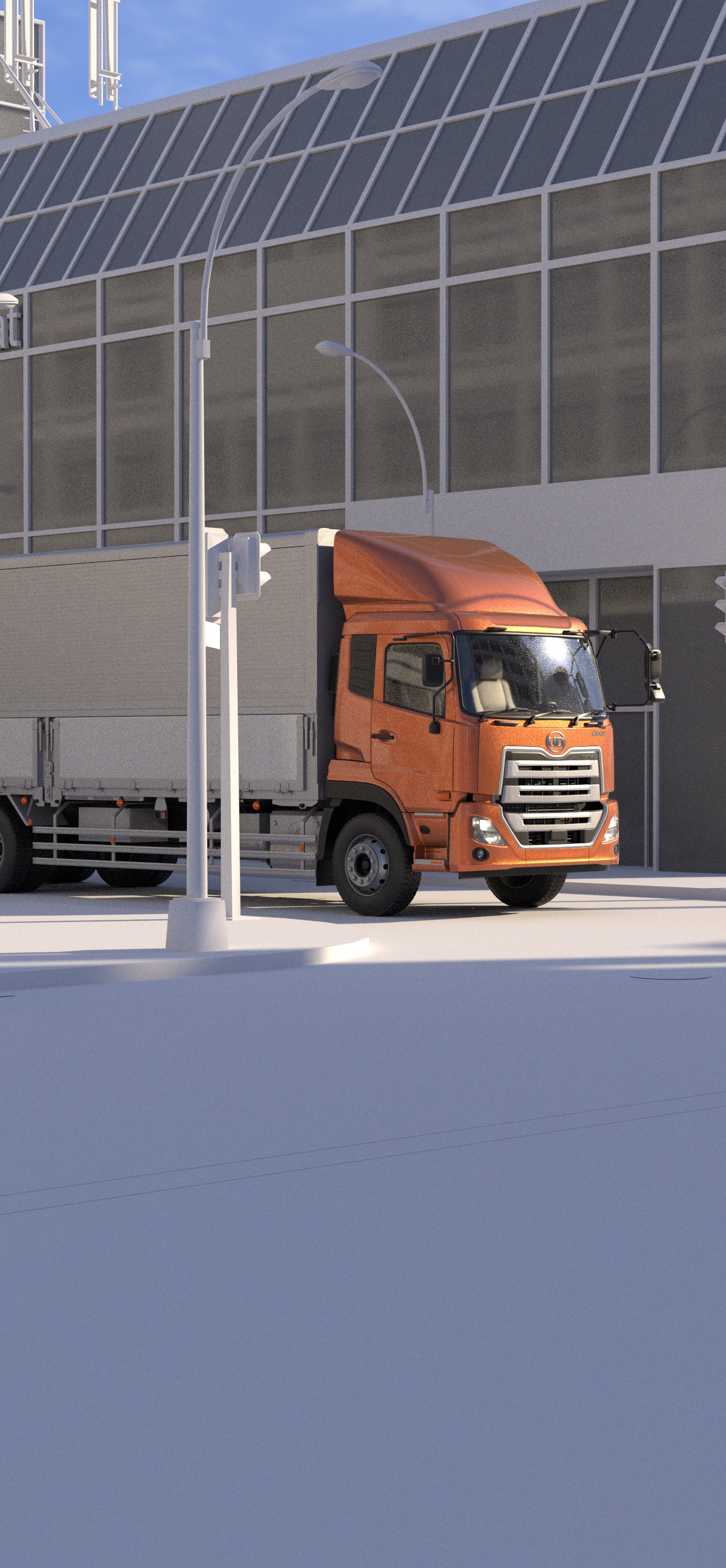

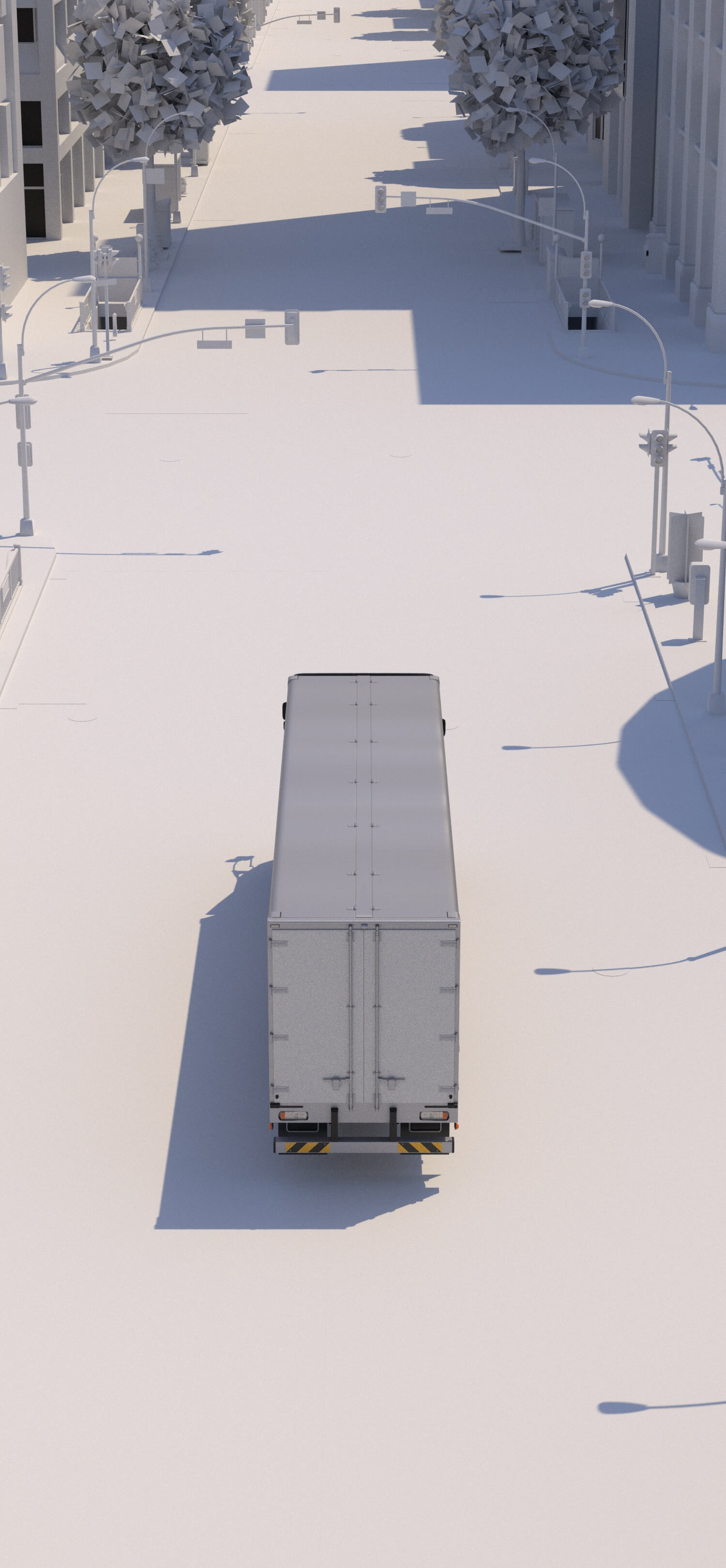
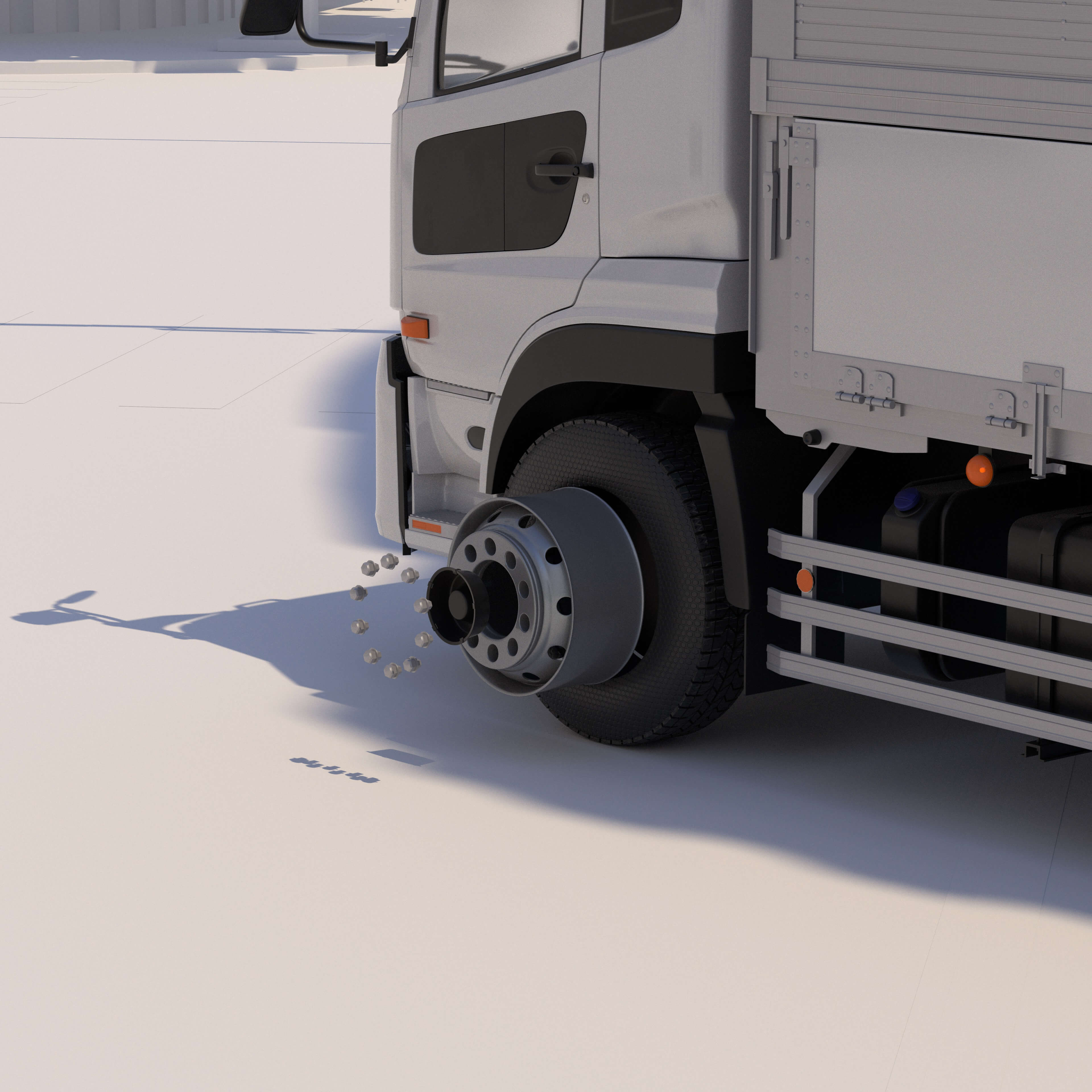

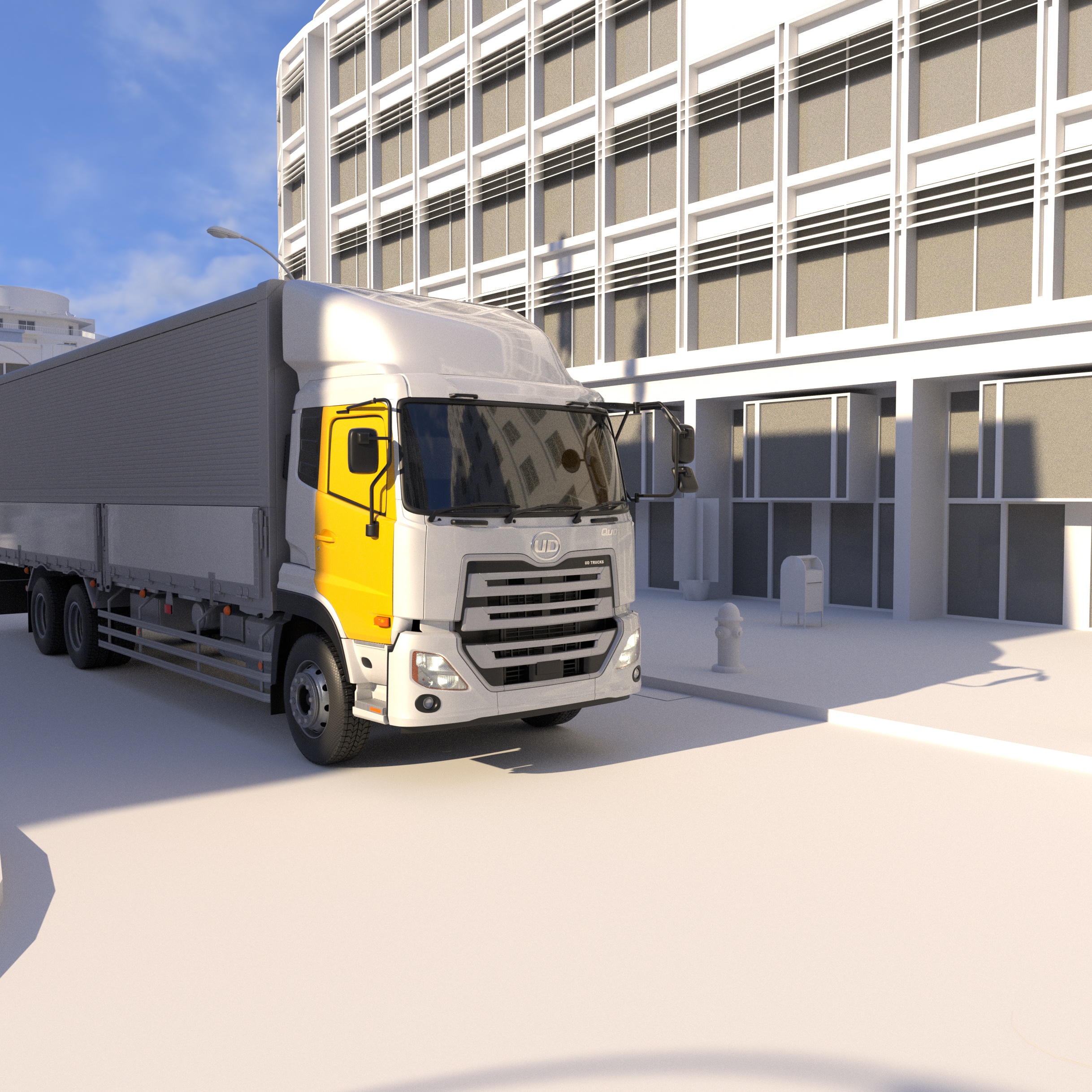
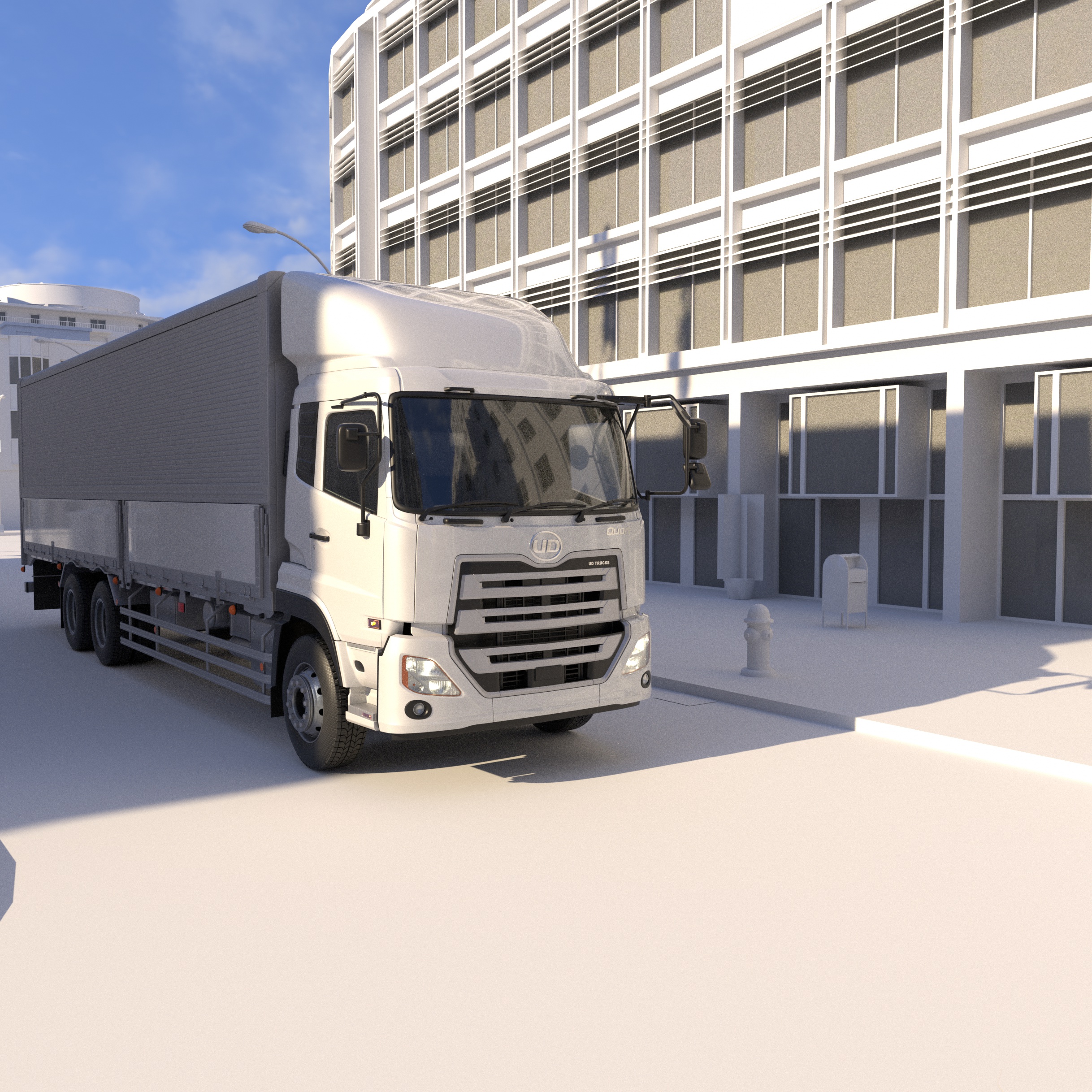
Design
We designed the app in Figma and prototyped using a combination of SwiftUI & ProtoPie.
Home Screen
The home screen would allow drivers to immediately scan their vehicle registration plate and connect to it. The vehicle was connected to the internet via a 4G LTE device, installed within the driver cabin.
Pre-Trip Checks
Typically pre-trip checks would be conducted using a pen and paper. These papers often would be lost and the process was often tedious. Using this digital process, we are able to capture vehicle issues immediately and flag them to fleet managers.
Service Station
To ensure driver wellness and health, automatic service station alerts would be sent to the device. The driver would also have the option to view service stations that support AdBlue fuel for their trucks.
Feedback & Self Reflection
Ensuring drivers drive efficiently and with care, the app would monitor their driving performance in combination with the tracking device installed within the vehicle. This would allow drivers to be notified on any areas they would need to improve upon, allowing them to become better drivers. This also means less fuel is being wasted, and as a subsequent impact - less carbon emissions.